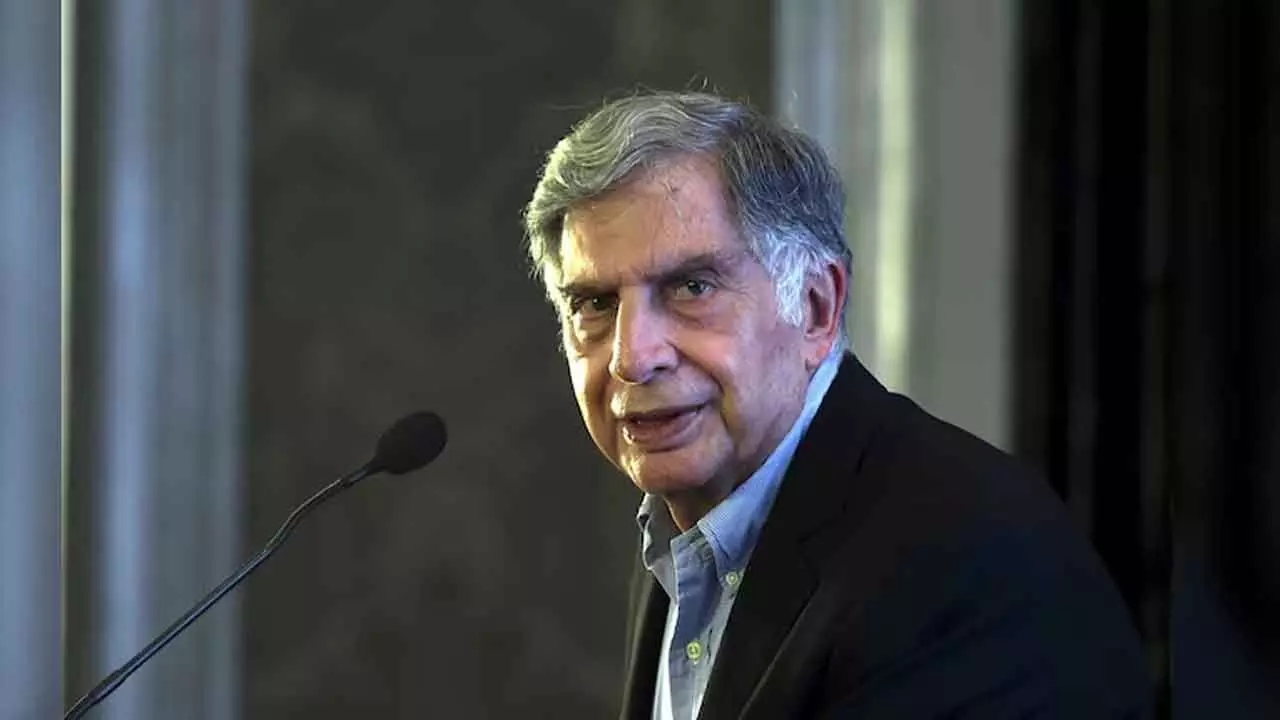Paragon Of Leadership And Propriety, Ratan Tata Will Remain India Inc’s Role Model
Paragon Of Leadership And Propriety, Ratan Tata Will Remain India Inc’s Role Model

If you want to tell someone what an industrialist ought to be, you can think of nothing better than citing the example of Ratan N. Tata, who passed away at the age of 86 years on Wednesday. Among the most revered industrialists, he was a paragon of leadership, propriety and innovation. He became chairman of the Tata Group, a salt-to-software conglomerate, which began its journey in 1868, around the time when economic reforms were taking shape in the country. His association with the group had begun two decades earlier but his ascension came at a time when India’s economic policy was undergoing a paradigm shift. Apart from the fundamental changes in the policy framework that the group had to negotiate, he had to reckon with the presence of many powerful corporate bosses within the conglomerate. It is a tribute to his astute leadership qualities that the group transformed itself from a top industrial house functioning in a tightly regulated environment into a multinational entity post-1991. For over two decades, the Tata Group thrived, diversifying across sectors and making acquisitions globally—all this without attracting the taint of sharp practice and cronyism. Under him, the group became a global player, acquiring major companies like Tetley Tea, Jaguar Land Rover and Corus Steel. While some moves in the aggressive expansion drive were successful, others like Corus Steel were not.
Similarly, Tata Motors’ small car project, Nano, didn’t gain much popularity and its production had to be halted in 2020. But Tata could, in the words of Rudyard Kipling, “meet with triumph and disaster/and treat those two impostors just the same.” He marched on. He had great faith in the ethical approach of his group. Profits were never ignored, but they were not ‘at any cost’—surely not at the cost of propriety. Not surprisingly, the group remained deeply committed to philanthropy, promoting education, healthcare and environmental sustainability. He donated generously to institutions like the Tata Memorial Hospital, which provides cancer treatment to economically weaker sections, and the Indian Institute of Science. For him, corporate social responsibility (CSR) initiatives did not mean compliance to the legal provisions; he was actually interested in philanthropy. Glowing tributes have been paid to Ratan Tata. Prime Minister Narendra Modi called him “a compassionate soul, who had an unwavering commitment to making our society better.”
People from all walks of life have shown their admiration for Tata. Even as he endeared himself to lots of people, he could speak his mind and act tough when he had to. In January 2012, for instance, he struck a discordant note to the chorus of ‘policy paralysis’ that his fellow-industrialists were singing. “We must stop pessimism… India’s [economic] fundamentals are correct and we should be striving for retaining growth rate,” opined Tata. Also, he was resolute in his campaign in the 1990s to remove top bosses like Russy Mody and Darbari Seth, who were firmly entrenched in the group. Ratan Tata retired in 2011 and made Cyrus Mistry the successor, but five years later he ensured Mistry’s exit. Ratan Tata, who personified business leadership and uprightness, will remain an inspirational role model for India Inc. A real tribute to such an exemplary Indian brand ambassador would have been in honouring him with the Bharat Ratna in his lifetime and not doing the same posthumously.

